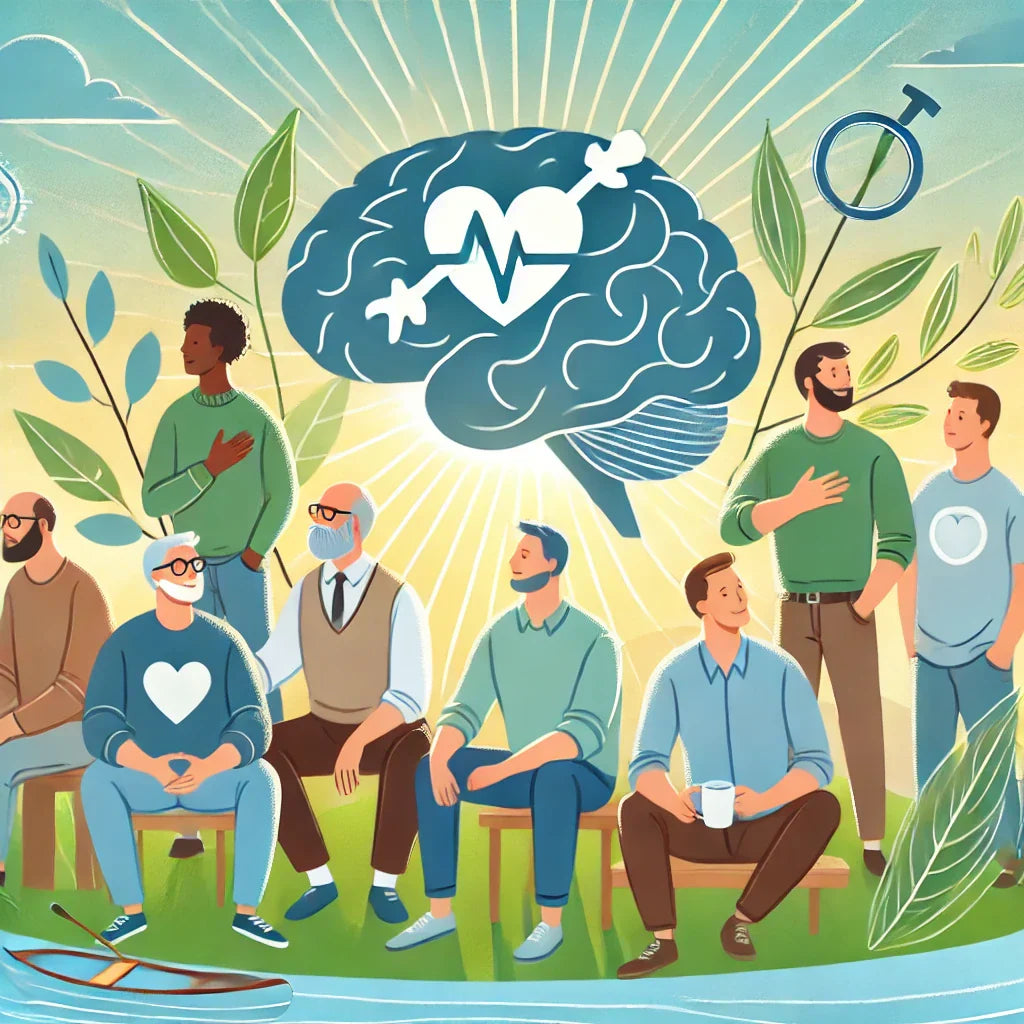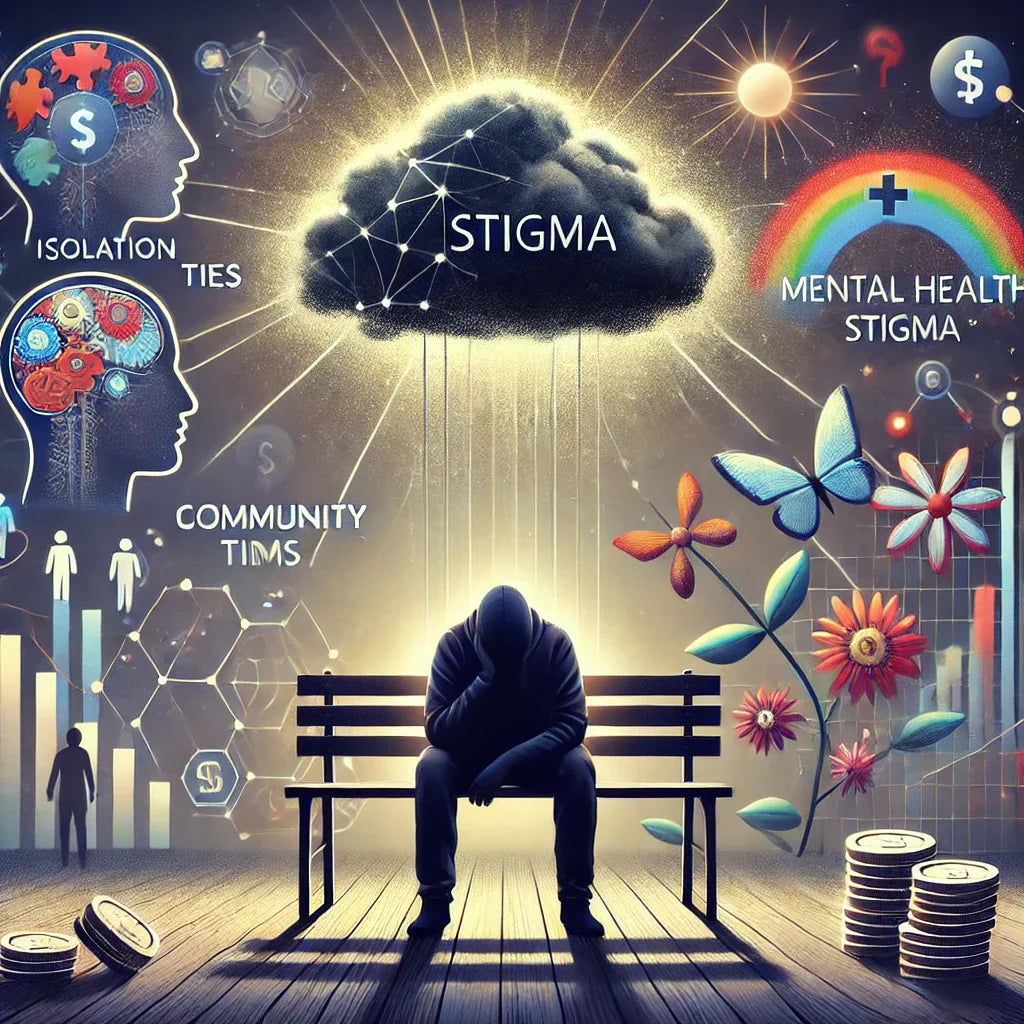News — mental health awareness
Prioritizing Men's Mental Health: Addressing Common Challenges
breaking stereotypes about men’s mental health coping with anxiety in men emotional resilience for men holistic mental health care men's mental health mental health advocacy for men mental health awareness mental health challenges mental health stigma mental health strategies mental wellness tips for men overcoming depression self-care for men support groups for men
Men's mental health has long been an overlooked aspect of public health, despite its significant impact on individuals, families, and society. Cultural norms often discourage men from discussing their mental health struggles, leading to underdiagnosis and untreated conditions. However, recognizing the unique challenges men face is essential for fostering emotional well-being and resilience.
This article explores common mental health challenges affecting men, addresses the stigma surrounding the topic, and provides actionable strategies for overcoming these barriers. By prioritizing men's mental health, we can create a supportive environment that encourages open dialogue and access to care.
The Cost of Stigma: How Mental Health Stigma Harms Individuals and Society
barriers to mental health treatment breaking mental health stereotypes effects of stigma impact of stigma on mental health mental health awareness mental health education mental health stigma overcoming mental health stigma reducing mental health stigma societal impact stigma and healthcare access
Mental health stigma remains one of the most pervasive barriers to achieving a healthier, more inclusive society. For millions of individuals, the fear of judgment, discrimination, or misunderstanding prevents them from seeking the support they need. The result? Widespread suffering that affects not only those directly impacted but also the broader community.
This article delves into the multifaceted costs of mental health stigma, examining its effects on individuals and society at large. By understanding these impacts and exploring actionable solutions, we can take meaningful steps toward breaking down stigma and fostering a culture of empathy and acceptance.
Navigating the Emotional Rollercoaster: The Impact of BPD on Relationships
borderline personality borderline personality disorder BPD and relationships BPD communication BPD rollercoaster emotional health emotional impact of BPD emotional support managing BPD mental health mental health awareness mental health support navigating BPD relationships relationship challenges relationship tips understanding BPD
Borderline Personality Disorder (BPD) is a mental health condition that significantly affects interpersonal relationships. For those who have BPD and their loved ones, relationships can feel like an emotional rollercoaster, full of highs and lows that are both challenging and rewarding. Understanding the dynamics of BPD is the first step in fostering meaningful connections and navigating its impact.
Whether you're living with BPD or supporting someone who is, the emotional intensity can sometimes feel overwhelming. However, with greater awareness, effective communication, and targeted strategies, it's possible to build resilient, supportive relationships that thrive even in the face of these challenges.
Strengthening Family Bonds: Coping with Schizophrenia Together
caregiving community support coping strategies crisis management family bonds family resilience family support family trust managing schizophrenia mental health mental health awareness mental health resources mental illness open communication professional help schizophrenia schizophrenia symptoms self-care stigma reduction support groups
Coping with schizophrenia as a family can feel like navigating uncharted waters. While the condition often presents complex challenges, it also opens a door to strengthening family bonds through mutual support, empathy, and understanding. The journey of living with schizophrenia is not one that anyone has to face alone. With the right resources, a well-informed support system, and shared resilience, families can turn adversity into an opportunity to grow closer.
This article will explore practical strategies for creating a nurturing and supportive environment for families dealing with schizophrenia. By addressing topics such as understanding the condition, open communication, self-care, and professional interventions, we aim to empower families with tools to cope and thrive together. Let’s dive into the ways families can transform the challenges of schizophrenia into a pathway for deeper connection and collective growth.
The Fear of Fear: Understanding Agoraphobia
agoraphobia agoraphobia symptoms agoraphobia treatment anxiety disorders fear of fear managing anxiety mental health mental health awareness overcoming fear panic attacks
Agoraphobia, often misunderstood as merely a fear of open spaces, is a complex anxiety disorder that affects how people navigate the world. For those who live with it, everyday activities can become fraught with fear, making normal routines feel insurmountable. The experience is not just about physical spaces—it’s about the overwhelming fear of experiencing fear itself.
At its core, agoraphobia revolves around the anticipation of panic attacks and the distressing sensations that accompany them. This often creates a cycle where individuals avoid situations or environments that might trigger these feelings, leading to isolation and diminished quality of life. Understanding the nature of agoraphobia is crucial to breaking this cycle and paving the way to effective treatment and recovery.





